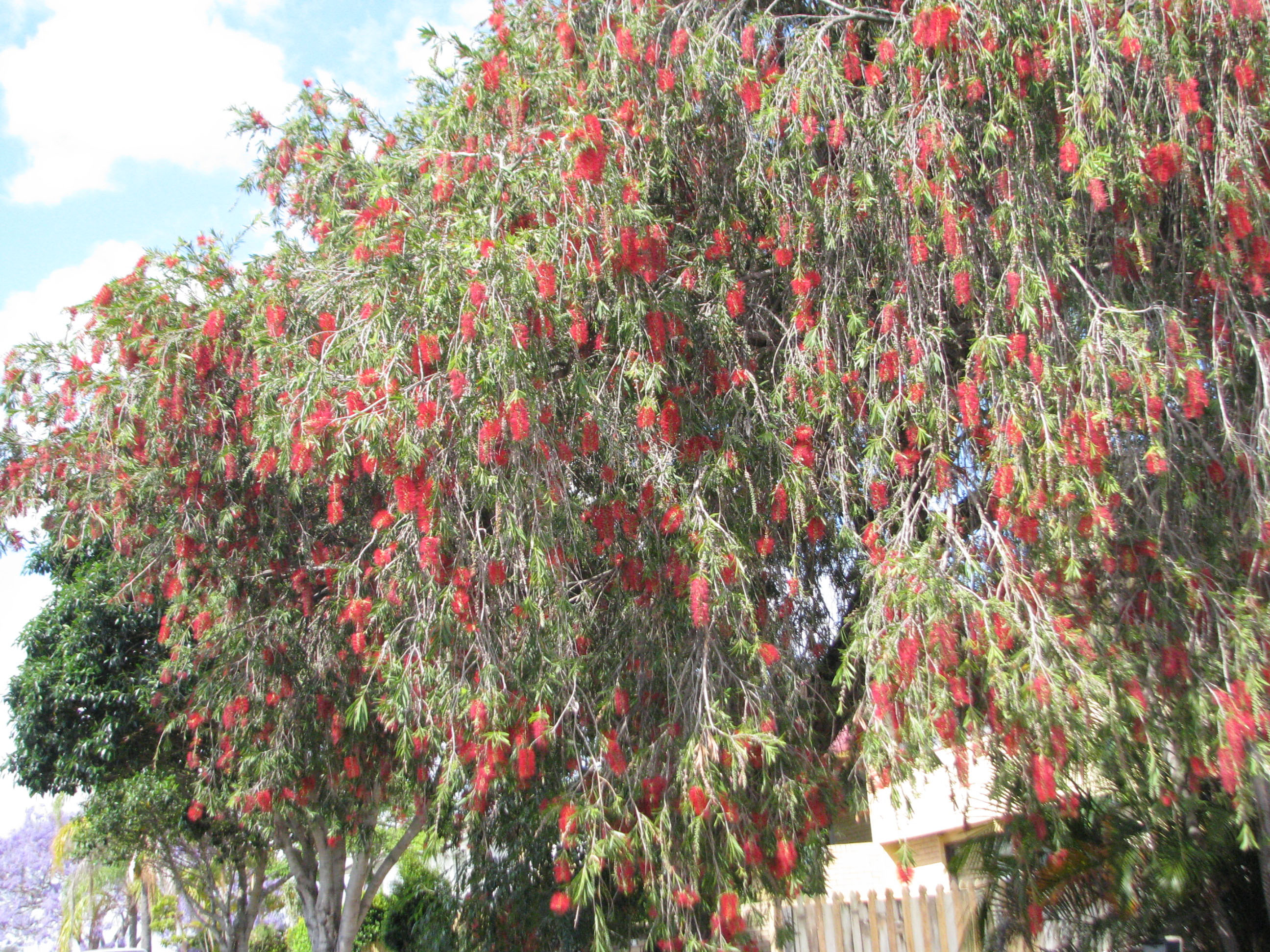I wrote a letter to Bunnings, asking them to withdraw sales of weed species from their hardware stores. They currently sell Duranta , mock orange and Sanseviera trifasciata, mother-in-law tongue at my local store in Brisbane.
Sanseviera trifasciata is listed on the Weeds Australia website (of the federal government’s weed advisory service), DAFF, the Queensland government department concerned with weeds; and the Brisbane City Council’s horticulture department. Duranta is listed on both the Weeds Australia and the BCC databases.
There are more. Alcontophoenix alexandrae, alex palm, is listed on Brisbane City Council’s weeds list where they bemoan it displacing the locally native Bangalow palm.
I asked a Bunning’s team member and her response was, “we know, but people still buy them”. I suggest those same people buy them assuming Bunnings holds more regard for the environment than they do.
We have beautiful Australian native plant species that can pollinate other natives, 

Still selling Mother-in-law-Tongues at Bunnings! According to City Of Gold Coast weed register it’s an offence to transport them, let alone knowingly sell them. 🤷🏻♀️
Just been to Bunnings, noted the date of this post, can’t believe its 2022 and I’m tripping over a whole crate of hundreds of bloody mock orange. We can’t get toilet paper in Woolworths but we can get a hundred mock orange in Bunnings.
sad face
Hi David
Have been reading with interest posts relating to killing Chinese Elm trees. We have a few but one I am especially concerned about is growing next to our hot water system. I want to get rid of it ASAP so was wondering what poison would do the job most effectively. I try to avoid toxic solutions but in this case I think the benefits outweigh the risks.
Thanks Deanne
Hello David,
I have just read your article about borers!! Very handy…thank you
I have some biodynamic paste to spray my tree trunks and most branches with….evidently deterrs borers whilst giving the tree a boost!! I have yet to see if this is useful or not..
One of my veterinarian brothers, is on a similar road to you regarding weed-plants…as well as thosr you mentioned…he has been trying to have something done about the sappy ‘ succulent type ‘ desert rose…evidently the sap is used on poison attow heads….deadly!! Seeds are airborne and prolific!!
Thank you for your terrific information!!!
PA
Hi David, I’m enjoying your blogs.
I thought that Marsha’s (Mock Orange) were natives.
We have a lot in our yard and love the flowers and fragrance and sign of rain they give.
Also, do you work as far away as Deception Bay?
Maraya, stupid spell check
They smell like urine mixed with cheap perfume
I replaced the one I inherited when we bought a place and put in Summer Scents
Hi david! I was not aware that mock orange deemed a weed, yes it propogates very easily, but its benefits to the bee colony are astounding. When everyone cuts down their native trees, there is nothing left for the bees, butterflies, bats and birds. But if the suburban plot willing to plant a species that generates our bees and wildlife,….is that wrong? ..as long as people r aware it can spread…but its in no way on the same scale as other flowering weeds, is it the cuphea? ..still sold in shops.. maybe it is warranted as a plant worth investing our future bees in?…maybe rather than ban, a notification from the wholesaler on the label, its potential to spread and therfore become a weed? We need bees, we need flowers, the mock orange produces masses xxx
We need bees, we need flowers… and there are so many harmless native plants that provide wonderful resources for bees! You can replace that Murraya with something wonderful. Ask at your local native nursery.
Great post.
you should start a petition! You’d probably get a lot of traction.
The Bunnings nursery compliance co-ordinator emailed me this afternoon to say he is preparing a detailed response. If he gives me spin I might do as you suggest. If he withdraws environmental weeds from sale, on the other hand, I won’t have to.
Like your work David, they should be pushing native species allot more than they do and they shouldn’t even be allowed to sell weeds. The staff should be educated in native species and their use in gardens and be encouraging the public to purchase them, if the native species were marketed better they would sell truckloads more of them.
I wholeheartedly agree with this letter. I also believe Bunnings should be responsible and remove systemic pesticides proven to be linked with CCD from shelves and (potential) nursery practices.
Thanks for your support and for adding to the conversation, Elliot. I care about CCDs and honeybees too, especially since they pollinate a third of the food we eat.